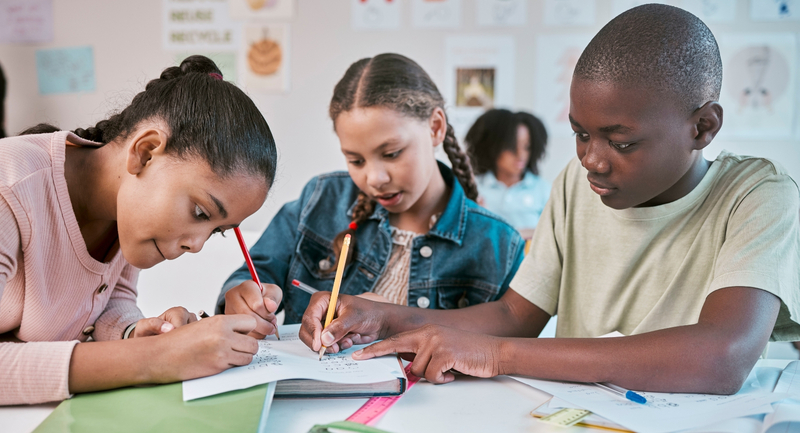Professional learning must focus on improving practice, changing mindsets.
The following is an excerpt from an Educational Leadership interview with ASCD authors William Parrett and Kathleen Budge, who are internationally recognized for their work studying high-performing, high-poverty schools. Read the full article here.
One action you say is essential for high-poverty schools to be successful is building teachers' leadership capacity. Why is this so key?
William Parrett: In studying high-poverty/high-performing schools . . . the heart of improving was always professional learning. There were [typically] a few components to that learning. One was a sense of urgency—they believed their kids could do better and were committed to it happening. And successful schools always looked at their data, facing the "brutal facts" about aspects of students' achievement, and let those brutal facts lead them to changes in practice.
Kathleen Budge: These schools couldn't have improved their achievement, to the point that they did, without a systemic approach. We've known for decades that in all high-poverty schools there are great teachers here and there. But building collective capacity is so important. That can't happen without building the leadership capacity of more than the principal. It has to be a collective vision and belief of what their school can become. One piece is to strengthen teachers' skills and body of knowledge, to change their practice. When teachers improve their practice and see kids doing better, their beliefs begin to change.
Do teachers need to learn certain realities about poverty?
KB: In our new ASCD book, we have a "poverty primer," basics we think all educators should understand. A good chunk of that is about challenging stereotypes and myths about poverty that are deeply embedded in our culture. It's not just teachers, it's all of us living in the United States; our "mental maps" have been impacted by stereotypes of people who live in poverty. Challenging those sets of beliefs is one key aspect we incorporate in our PD—and we think is paramount to a school turning around.
When leading a workshop, we always ask the group, "What do people in the U.S. believe about people living in poverty?" 99.9 percent of the time, the first answer is "most people think they're lazy." There's a prevalent belief that people who live in poverty don't work. And that's inaccurate: People who live in poverty on average work more hours than the middle class. Other myths are that they abuse drugs and alcohol more and they don't value education. These myths are destructive when we try to build relationship with kids and families.
WP: [If teachers] don't believe these kids coming from poverty can achieve as well as others, it can have insidious impacts. Research has exposed the kind of dumbed-down assignments teachers give students when they don't believe the kids can do the work. So unfortunately, too often students coming from poverty don't receive the same high-quality instruction. But teachers' and leaders' low expectations of students is something we know can improve. Many educators have talked with us about what they did to create a culture of high expectations. It always includes professional development.
But can you teach someone to have higher expectations?
WP: We've found a powerful influencer for adults is to "see what good looks like." It helps to portray not just the current status of the high-performing/high poverty schools, but the journey these schools endured and took on. When people can see this—and we use video from the schools and other visuals—it's easier to get to, "If it can happen in those schools, what's preventing it from happening in any school?"
KB: Another important thing: None of the schools we studied told us, "We went in and changed people's minds or hearts first." It doesn't happen like that. To become high-performing, you don't spend all your time on beliefs and culture—it's an interweaving of that work with the actual work of becoming a more skilled professional.
What are key characteristics of PD that helps a high-poverty school improve?
WP: One important [characteristic] is frequency. Sometimes, schools build a plan and goals, but spend months deciding on it and maybe check in in three months to see how they're doing. That's not what happens in high-poverty schools that improve. They have a palpable sense of urgency. Building leadership teams, PLCs, or whatever structure, meet very frequently, often weekly, to deal with issues related to achievement.
KB: Frequency is important. But I'd say the most important thing overall is to do the learning in some kind of community—and have it entail making teachers' practice public.
Editor’s note: Find additional resources on serving the needs of students in poverty in ASCD’s “Preparing for Fall” resource guide.








